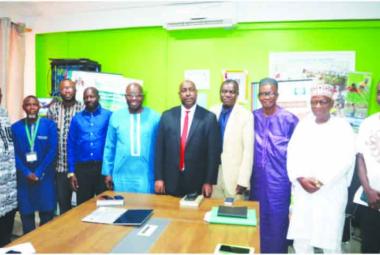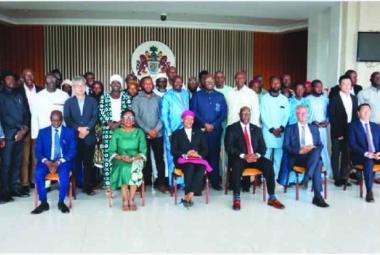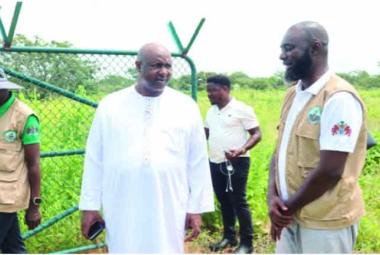Stakeholders in the field crops and vegetable sub-sectors last week validated the content of an e-extension ICT platform for agricultural extension delivery and management at a day’s workshop at the Baobab Resort in Bijilo. The workshop was hosted by the Department of Agriculture (DoA) in close partnership with the Central Projects Coordinating Unit (CPCU) of the Ministry of Agriculture with funding from The Gambia Inclusive and Resilient Agricultural Value Chain Development Project (GIRAV).
The validation workshop was facilitated by a team of consultants from the Webway firm, which is contracted by the GIRAV Project to develop ICT Platform for the DoA.
GIRAV is a USD40 million grant from the World Bank being executed by the Ministry of Agriculture and implemented by the Central Projects Coordination Unit (CPCU) of the MoA across The Gambia. The Project’s objective is to promote the development of inclusive, resilient, and competitive agricultural value chains, focusing on smallholder farmers and agribusinesses in project target areas.
Mr. Paul L. Mendy, Monitoring and Evaluation Specialist for the GIRAV project and the CPCU delivered the opening statement on behalf of the Coordinator of the CPCU Mr. Abdoulie Touray. He explained that component two of the project aims at Building a productive and climate-resilient agri-food system.
He said: “The GIRAV projects attach high importance to improving access to and use of new technologies and digitalisation in agriculture. Subcomponent 2.2 aims to increase access and adoption of improved climate-smart technologies, innovations, and advisory services adapted to the needs and scale of farmers and SMEs, to increase productivity, competitiveness, and resilience at the farm level as well as downstream in the target value chains.
“This subcomponent will also promote the use of digital technologies to develop services to increase access to innovative technologies and advisory information throughout the target value chains (particularly climate information and climate-smart practices and technologies). It is within the framework of this subcomponent that the project contracted The Web Way to develop an e-extension platform (ICT equipment, e-lab, call center, voice message services) using digital solutions to modernize advisory services and extend their outreach amidst the increasing demand for extension advisory services.
“In the drive to promote access and the adoption of new technologies, in 2022, the project procured and distributed 200 metric tons of certified rice seeds and 50 metric tons of certified maize seeds amongst over 11,000 farmers. This year, the project also procured and distributed 150 metric tons of certified rice and 100 metric tons of certified maize amongst over 15,000 farmers across the country. The seeds are high-yielding, early-maturing and drought-resistant varieties (in some cases with tolerance to saline conditions) suitable for the different ecologies in the country”.
Mr. Mendy reiterated the importance the GIRAV project and MoA attaches to the E-Extension ICT Platform. He called on the DoA to take ownership of the initiative and ensure that that the platform is sustained and utilized for the intended purpose.
Mr. Ebou Edmund Mendy, Director for Administration at the DoA thanked the GIRAV project and the World Bank for the intervention. He underscored the importance of the intervention towards strengthening the extension delivery system. He assured that the DoA will take ownership of the investment.
Other speakers included Mr. Njaga Jawo, Executive Director of NaWFA and Mr. Mustapha Drammeh, regional Agriculture Director for West Coast Region who both underscored the importance of the workshop and challenged participants to measure up to expectations.
Source: FAO communications






